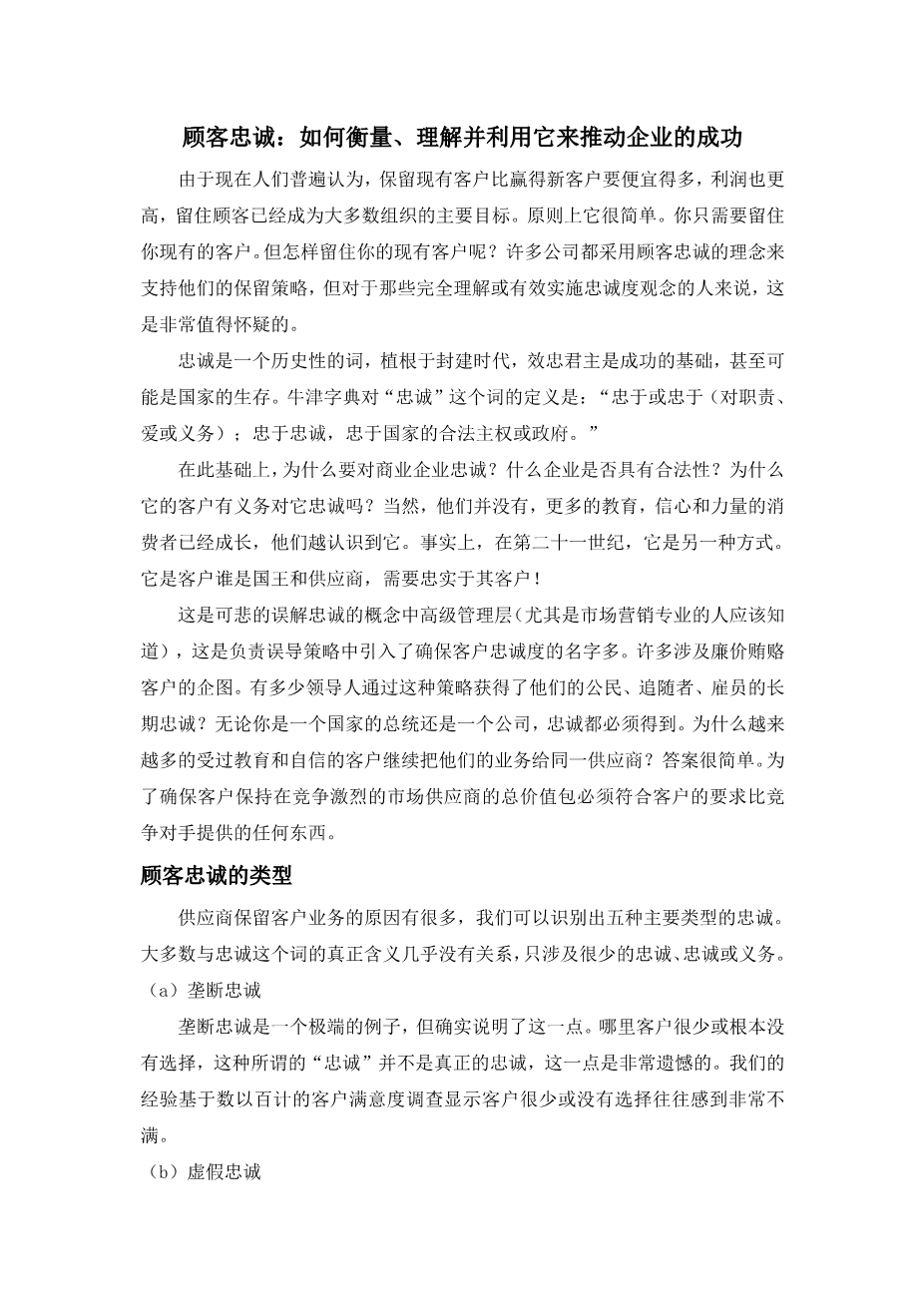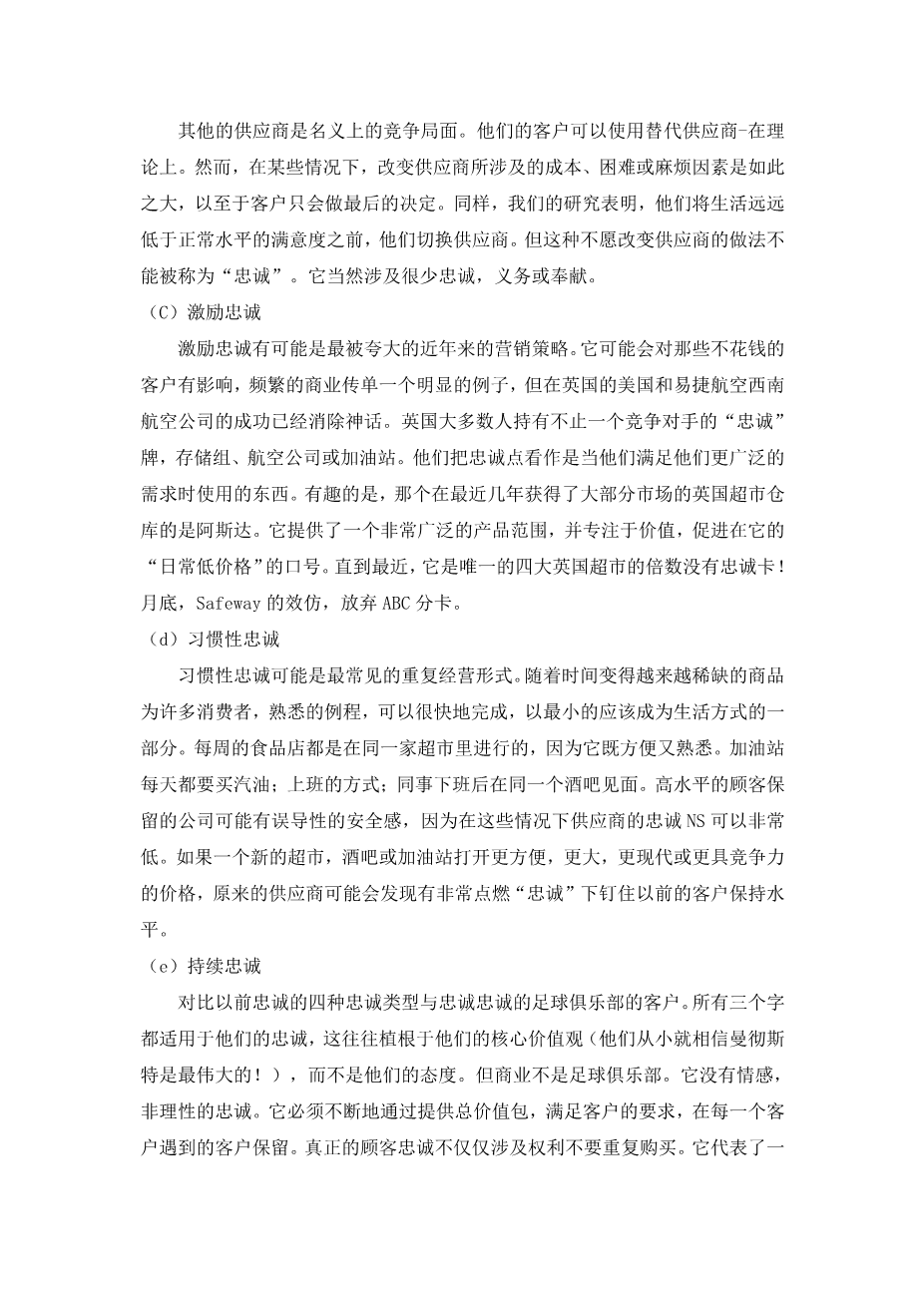Customer loyalty: how to measure it, understand it and use itto drive business success.
Since it is now widely recognised that it is much less costly and much more profitable to keep existing customers than to win new ones, customer retention has become a major goal for most organisations. In principle it’s simple. You just have to keep your existing customers. But how? Many companies have adopted the idea of customer loyalty to spearhead their retention strategies, but it is very doubtful whether the loyalty concept is fully understood or effectively implemented by many who embrace it.
Loyalty is a historical word, rooted in feudal times when allegiance to the sovereign was fundamental to the success, perhaps even the survival of the state. The Oxford Dictionary’s definition of the word ‘loyal’ is: “True or faithful (to duty, love or obligation); steadfast in allegiance, devoted to the legitimate sovereign or government of one’s country.”
On that basis, why should anybody be loyal to a commercial enterprise? What
legitimacy does the enterprise possess? Why do its customers have any obligation to
show allegiance to it? Of course they don’t, and the more the education, confidence and power of consumers have grown, the more they realise it. In fact, in the twenty-first century it is the other way round. It is the customer who is king and the supplier that needs to be loyal to its customers!
It is the woeful misunderstanding of the loyalty concept amongst senior managers (and especially amongst the marketing profession – the very people who ought to know better), which has been responsible for the plethora of misguided strategies which have been introduced in the name of securing customer loyalty. Many involve cheap attempts to bribe the customer. How many leaders have secured the long term loyalty of their citizens / followers / employees by such tactics? Whether you are president of a country or a company, loyalty has to be earned. Why should increasingly educated and confident customers continue to give their business to the same supplier? The answer is simple. To secure customer retention in a competitive market the supplier’s total value package has to match customers’ requirements better than anything offered by competitors.
Types of loyalty
There are many reasons why suppliers retain the business of their customers. As shown in Table 1, we can identify five main types of loyalty. Most bear little relation to the true meaning of the word loyalty, involving very little allegiance, devotion or duty.
Monopoly loyalty is an extreme example, but does illustrate the point. Where
customers have little or no choice, their ‘loyalty’ is far from devoted. It is often resentful. Our experience based on hundreds of customer satisfaction surveys shows
that customers with little or no choice often feel very dissatisfied.
Other suppliers are notionally in a competitive situation. Their customers could use alternative suppliers – in theory. In some situations, however, the cost, difficulty or hassle factor involved in changing suppliers is so great that customers will do it only as a last resort. Again, our research shows that they will live with much lower than normal levels of satisfaction before they switch suppliers. But this reluctance to change suppliers cannot be described as ‘loyalty’. It certainly involves little allegiance, duty or devotion.
Incentivised loyalty has possibly been the most over hyped marketing strategy in recent years. It may have some effect on customers who are not spending their own money, frequent business flyers being an obvious example, but the success of Southwest Airlines in the US and Easyjet in the UK is already dispelling that myth. Most people in the UK hold the ‘loyalty’ cards of more than one competing supermarket, store group, airline or petrol station. They see the loyalty points as something they may as well take when it meets their wider needs to use that supplier. Tellingly, the UK supermarket which has gained most market share in recent years is ASDA. It offers a very wide product range and focuses on value, promoted in it’s ‘everyday low prices’ slogan. Until recently it was the only one of the big four UK supermarket multiples which did not have a loyalty card! At the end of May, Safeway followed suit, abandoning its ABC Points Card.
(d) Habitual loyalty
Habitual loyalty may be the most common form of repeat business. As time becomes an increasingly scarce commodity for many consumers, familiar routines that can be quickly accomplished with minimal thought become part of the lifestyle. The weekly food shop is conducted at the same supermarket because it is convenient and familiar. Petrol is bought at the filling station that is passed every day on the way to work. Colleagues meet in the same pub after work. Companies with high levels of customer retention may feel a misleading sense of security because allegiance to suppliers in these situations can be very low. If a new supermarket, pub or petrol station opens which is more convenient, bigger, more modern or more competitively priced, the original supplier may find that there was very little ‘loyalty’ under-pinning the previous levels of customer retention.
(e) Committed loyalty
Contrast the ‘allegiance, devotion and duty’ of the previous four loyalty types with the loyal customers of a football club. All three words apply to their loyalty which is often rooted in their core values (they were brought up to believe
剩余内容已隐藏,支付完成后下载完整资料


英语译文共 3 页,剩余内容已隐藏,支付完成后下载完整资料
资料编号:[484929],资料为PDF文档或Word文档,PDF文档可免费转换为Word


